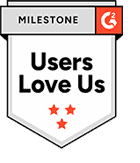
In recent weeks, we’ve been participating in some insightful events with corporate Controllers, CFOs, CAOs, global accounting firms, and other members of the financial leadership community, including the Controller Summit in Boston, FEI’s Current Financial Reporting Issues Conference in New York City, and CBI’s Lease Accounting – Implementing ASC 842 event in Philadelphia.
At every event, there were common threads discussed concerning the disruption of financial reporting. Not surprisingly, many of these were related to the impact and implementation of the new lease accounting standards, specifically FASB accounting and IFRS accounting concerns. Technology issues related to adopting the new lease standard were also a hot topic of conversation.
In this article, we will summarize some of the key takeaways about the changes to FASB & IFRS accounting for those of you who were unable to attend.
Top Lease Accounting Issues for Financial Leaders: FASB Accounting & IFRS Accounting
Much of the discussion about the impacts of implementing the new lease accounting standards centered around technology issues and specific accounting challenges.
Technology concerns
According to Daryl Buck, National Managing Partner of Accounting Advisory Services for Grant Thornton LLP, 90% of companies will need to implement new software in preparation to comply with the new lease standard. Currently half of these companies have not yet selected a software solution for FASB or IFRS accounting. Here are some common areas of concern.
The demo always works
Software typically looks great during a 30 minute demo. When you are under the gun to make a choice, you may fail to adequately consider how everything will work with your your data, your policies and procedures, and your specific accounting issues. Implementation might not be discussed at all, yet this becomes a critical pain point for many companies.
Lesson: Carefully investigate what it will take to get your data into your chosen software. Solutions need to go the extra mile to provide migration tools that simplify and speed the process.
Learn more: Data Collection Tips for ASC 842 & IFRS 16 Compliance
Plan for customization
There’s no such thing as a cookie-cutter company. That’s why no solution will work perfectly for you out of the box. This is especially true for business models such as large horizontal enterprises, those with highly decentralized multiple ERPs, and also those needing to comply additional country-specific accounting standards. Systems may require time-consuming and expensive customization. Even more more traditional organizations, nothing will work 100% out of the box.
Lesson: Plan for customization in your implementation timeline and budget. Ideally choose technology that’s easy to customize and doesn’t require outside consultants.
Technology providers are not quite ready to handle all the nuances
While most companies are behind on implementing the new FASB accounting and IFRS accounting standards for leases, even the technology providers haven’t implemented complete support for every aspect of the new lease standard.
Systems are ready to interact and transact data, handling 90-95% of lease accounting calculations that involve right of use assets and liabilities. However, more complex calculations are still in development for the majority of providers. Examples include:
- Sale leaseback transactions
- Re-measurement and lease modification (accounting for changes to lease contracts during the lease term)
- Currency spot rate accounting (While you regularly refresh currency exchange rates, in some situations you may want to track specific leases at the historical spot rate and report on the delta.)
Lesson: There may not be a single product that’s currently prepared to handle every single nuance of the new FASB accounting and IFRS accounting standards for leases. Has your chosen provider had a good track record of implementing feature roadmaps on time as promised?
Lease accounting challenges
Here are some important challenges your accounting team must be prepared to manage during (and even after) the transition to the FASB and IFRS accounting changes.
Enhancing key controls
It’s no secret that validating accounting data and financial entries is critical to your organization’s financial health. That burden has increased significantly due to the new FASB and IFRS accounting standards. That’s because nearly all leases have been brought onto the balance sheet and there are many new treatments for various types of lease agreements and payments. That means more oversight is needed to ensure accuracy of financial reporting. Large global organizations are setting up Centers of Excellence and bringing in experts to implement a broader and deeper scope of internal controls.
Lesson: Even if you’re not in a position to add an entire team, you’ll need to make sure your organization has the expertise and the bandwidth to expand your current levels of internal control and validation.
Identifying embedded leases
One of the most time-consuming challenges for many companies will be identifying and separating out leases that may be part of other contracts such as service agreements.
Lesson: Again, you’ll need to plan for the time and the expertise needed to comb through every contract to be sure you’ve identified every lease component that you must roll up onto your balance sheet.
Interpreting FASB accounting and IFRS accounting changes
For multinational organizations, it’s essential that you fully understand the differences between the FASB accounting standard and the IFRS accounting standard. There are some significant differences in the rules and treatments that you’ll need to plan for.
Lesson: Of course you’ll turn to your accounting partners for guidance. But be sure you understand all the implications for your reporting before you implement new technology.
Watch this blog for an upcoming article on this topic. Sign up for our emails to be alerted when it’s available.
Preparing for Day 2 lease re-measurement and modification accounting
In the race to get to compliance with the new standards, many organizations are failing to consider Day 2: the ongoing process of reporting based on the FASB and IFRS accounting standards.
Especially for real estate and industrial applications, leases change regularly. Components are added and expanded. Renewals and other options are exercised. Variable payments must be calculated. Values like Useful Life and Fair Market Value must be reassessed. Anything requiring changes to your accounting entries must be tracked and calculated. You’ll need the ability to automatically change future entries and disclosures while retaining the existing ones during the transition period.
Lesson: When preparing for the changes, don’t forget to consider Day 2 lease modification requirements. This applies not only to your technology (ideally a single source of truth used by both accounting and lease administration staff) but also to your policies and procedures. That way you can be sure you are always up to date with accurate entries.
The key takeaway: take action now
Don’t wait too long to get started implementing FASB accounting and IFRS accounting changes. Many companies will need the help of outside resources to get compliant. The closer we get to the implementation deadline, you may be hard-pressed to get those resources.
Learn more: Start Now to Spend Less on FASB & IASB Lease Accounting Changes
Did you miss Visual Lease at one of the recent financial reporting events? Not to worry, it’s easy to see our cloud-based lease accounting & administration technology online. Request a demo at your convenience.























